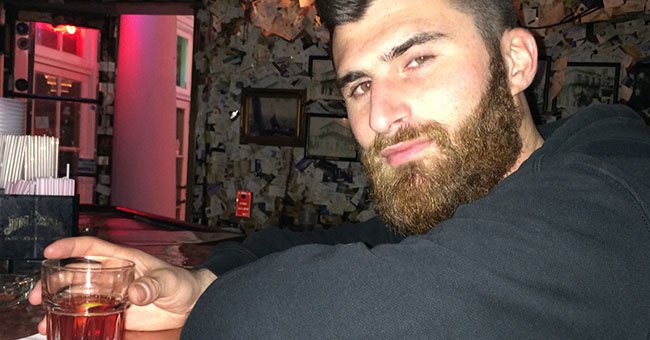Jarred Weigand’s journey to becoming a bartender at Death & Company started years before, outside a bar in New Brunswick, New Jersey. Weigand, a 21-year-old Rutgers student at the time, worked part-time as a doorman at Clydz. In between checking IDs and greeting people, Weigand caught glimpses of another world inside.
“When I was working the door, I saw everyone having a good time inside. I saw the guys working behind the bar, watched them move together fluidly, chat with customers – it looked like a lot of fun. That was my motivation to want to learn,” remembers Weigand.
“I was 21, but I was working with guys who had been bartending for 10 or 15 years. They seemed to enjoy their lives. A lot of them had stability – wives and kids – and as someone who was going the traditional route in school at that time it seemed like a really interesting way to make a living.”
Over the next four years, Weigand climbed the ladder at Clydz with steady promotions: busboy, barback, bartender and eventually bar manager. At that point, Weigand decided to take a career leap and work in New York City. He created a list of the bars he most wanted to work at, and then became persistent about dropping off his resumes.
Weigand knew that getting hired as a bartender at some of the world’s best bars was unlikely, so he tried a different approach: he agreed to take a position as a barback in order to learn more. Not only did this land Weigand a job at Death & Company; it also helped him reach a higher level of bartending.
Aside from the normal adjustments to a new bar, “The most intimidating part about making the transition was recognizing the depth of knowledge every bartender here has,” says Weigand. “I had only been introduced to one type of mezcal but I found myself working in a bar with 12 different kinds. All of the bartenders know about the distillation process and flavor profiles of each one.”
New York City’s high volume – of establishments, local patrons and tourists – gives it a uniquely competitive bar atmosphere, which Weigand recognized right away.
“When you have the opportunity to work at a great bar in New York City, you realize that everyone brings their A game every day. The professionalism is so high. Behind the scenes, everyone wants to study this or work on that project. In front of the bar, customers expect to see a top-notch staff working together and flowing,” says Weigand.
The decision to return to barbacking ultimately led to a bartender position when Weigand impressed the Death & Company management. Weigand was one of the first barbacks to get promoted to bartender. He has been working at Death & Company now for over a year and a half.
“Taking a step back and barbacking was a great choice. It’s very humbling. It’s also kind of nice in that you get to work really hard again and prove yourself to people. I was very fortunate to barback for a lot of the very well respected bartenders in this community. I got to work with them and pick their brains so I could learn as much as possible. I couldn’t have done it any other way,” he explains.
Weigand’s unique career path has given him a lot of insight into this industry. He has some first-hand advice for barbacks looking to transition to bartenders.
“Taste and smell everything you can. Every time you need to go downstairs to grab a bottle or refill something, familiarize yourself with it. Straw taste it, smell it, build your knowledge and develop your own opinions. Read everything you can get your hands on. I was always asking people I worked with to recommend articles, books, anything. Never stop learning.”
But it’s not just about the learning curve, your performance at work is equally important.
“Work as hard and as smart as you can. The bartenders you work with will always notice that. If you’re not a good barback, nobody will want to take you under their wing and mentor you. If you’re good and you work hard, people will do right by you when the time comes.”
There are no shortcuts, but a genuine interest for the trade and a tough work ethic will speed up the promotion process.
Many barbacks struggle with remaining positive and enthusiastic every day. The barback is a crucial role in any bar, yet these unsung heroes often feel unappreciated.
According to Weigand: “Sometimes things will be asked of you that you think are remedial or unimportant. Sometimes you don’t know why you’re doing something. Take pride in what you’re doing because there’s a reason for it. These little tests make the man (or woman).”
Jarred Weigand’s most important piece of advice, from one former barback to another? “Enjoy the job. Being a barback should feel rewarding. You should feel good at the end of your shift. Take pride in being part of the team, because without the barback, the train stops.”




